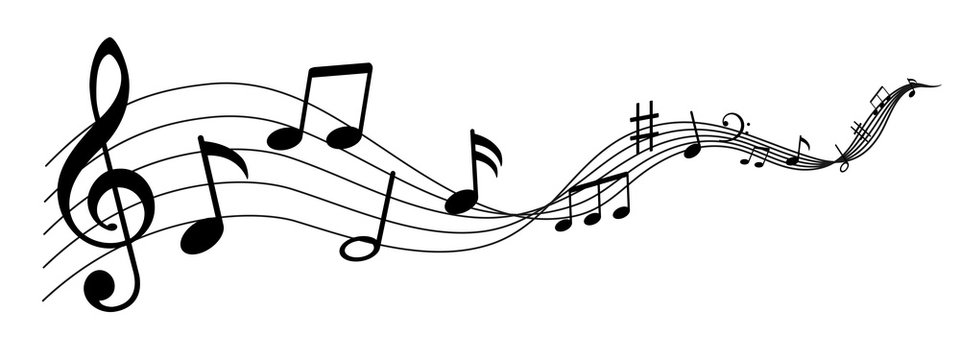Raise Your Wellness Trip: The Power of Recovery Music
Raise Your Wellness Trip: The Power of Recovery Music
Blog Article
The Impact of Songs on Emotions and Mental Wellness
In the world of psychology and health, the extensive effect of music on emotions and psychological health has actually long been a topic of rate of interest and research study. From influencing mood to offering as an effective device for tension management, music's duty in forming mental health is multifaceted and deserving of more expedition.
Impact of Music on State Of Mind

Study has shown that music can modulate state of mind by turning on neural paths associated with emotions in the brain. Listening to music can promote the launch of natural chemicals like dopamine and serotonin, which are known to regulate mood and emotions. This physiological action to songs describes why particular tracks can instantly uplift our spirits or bring tears to our eyes. Understanding exactly how music influences mood can have significant implications for using music as a therapeutic tool for emotional law and mental well-being.
Connection Between Songs and Anxiety
The interplay between musical stimuli and the human response to anxiety has actually been a subject of growing passion in the areas of psychology and neuroscience (MUSIC). Music has revealed exceptional capacity in mitigating stress degrees and advertising relaxation. Researches have actually indicated that paying attention to songs can result in physical modifications in the body, such as decreased heart price, lower high blood pressure, and lowered levels of cortisol - a hormonal agent connected with tension
The link in between music and anxiety relief is believed to be carefully connected to the effect of songs on the limbic system, which plays a crucial role in feelings and stress feedbacks. Specific kinds of music, such as timeless or ambient songs, have been discovered to be particularly efficient in inducing a sense of tranquility and relaxation. In addition, personal songs choices can also affect the stress-reducing effects of music, highlighting the relevance of individualized strategies when using music as a stress and anxiety administration device. Further research study around holds assurance for the growth of music-based treatments to help people handle stress more successfully.
Music as a Restorative Tool

Research study has revealed that songs therapy can significantly reduce anxiousness, anxiety, and check my site chronic discomfort. It has been particularly valuable for people with mental wellness conditions, developmental handicaps, and those going through clinical therapies. Music has the capability to evoke memories, boost positive feelings, and offer a feeling of comfort and leisure. Additionally, songs therapy can boost cognitive function, electric motor skills, and social communications.
Influence of Songs on Mental Health

Music has been found to have extensive impacts on mental wellness by affecting mood, reducing stress and anxiety, and enhancing overall health. Furthermore, music treatment, an organized usage of music to boost mental health end results, has been revealed to be helpful for individuals with numerous mental wellness conditions, consisting of post-traumatic anxiety condition (PTSD), schizophrenia, and dementia. On the whole, the influence of songs on mental health and wellness is an appealing area of research study that offers possible therapeutic advantages for individuals dealing with different psychological health and wellness obstacles.
Ways to Integrate Songs for Well-being
Songs has the power to evoke feelings and influence our psychological state, making it an important device for promoting health. One way to include music for wellness is by developing playlists that resonate with certain emotions or goals.
One more way to make use of music for wellness is via active listening. Putting in the time to genuinely involve with the music, concentrating on the verses, tools, and overall make-up, can strengthen the emotional connection and intensify the therapeutic impacts. This conscious method to paying attention can help individuals procedure feelings, decrease anxiousness, and boost overall psychological wellness.
Additionally, going to real-time songs events or shows can additionally add to well-being by providing a feeling of delight, connection, and neighborhood. Being component of a shared musical experience can uplift spirits, promote a sense of belonging, and produce lasting memories that favorably influence psychological health.
Verdict
To conclude, music has a significant effect on emotions and mental wellness. It can influence mood, decrease stress, and work as a restorative tool for enhancing mental health and wellness. Integrating songs into daily routines can enhance overall health and add to a favorable state of mind. It is essential to acknowledge the power of music in promoting emotional equilibrium and psychological clearness.
The connection between music and state of mind is complex, with different elements of music such as tempo, setting, and pitch playing vital duties in her latest blog evoking psychological responses. Recognizing exactly how music affects mood can have considerable ramifications for using songs as a restorative device for emotional regulation and mental well-being.
The connection in between music and stress and anxiety relief is assumed to be carefully connected to the influence of music on the limbic system, which plays a vital function in feelings and anxiety responses. In addition, individual music choices can likewise affect the stress-reducing effects of songs, highlighting the significance of individualized strategies when using songs as a stress monitoring tool. Furthermore, music therapy, a structured usage of songs to improve psychological health end results, has been shown to be helpful for individuals with different mental health and wellness problems, including post-traumatic stress and anxiety disorder (PTSD), schizophrenia, and dementia.
Report this page